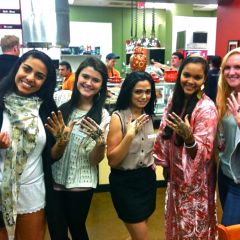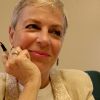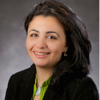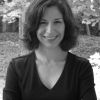Arab Refugee Oral History

2015 to 2016
Emerging Networks
The US invasion of Iraq in 2003 launched a mass migration of Arabs out of their homes in order to escape violence. This has been exacerbated by foreign occupation, political instability and revolution, civil war, and Islamic extremism. Never before have so many Arabs been driven out of their countries and compelled to seek asylum. Many have been resettled into communities throughout the United States, including Durham.
Three years ago, Professor Maha Houssami recognized the local Arab refugees’ need to be supported in their efforts to integrate into a brand new American context. Houssami created INJAZ (“achievement” in Arabic), a student-run language and cultural exchange in which undergraduate Arabic language learners team up with refugees. Duke students proved eager to engage with Durham’s Arab refugee residents, many of whom have been resettled into apartment complexes within walking distance of campus.
The enthusiasm that Arabic language students brought to their outreach work led AMES professors miriam cooke and Maha Houssami to introduce a new course, Refugee Lives: Violence, Culture and Identity (AMES 320S), in the Spring Semester, 2015. The course emphasizes critical thinking and political analysis but it is also a service-learning course. By involving students in documentary field research with Arab refugees, it connects the work students are doing in their classes to their engagement with the local Arab refugee community.
Students from Duke and UNC collect oral histories and digital images under the direction of a documentary practitioner, Nancy Kalow. The students then construct well-crafted documentary portrayals that can be used for advocacy, teaching, and community advancement. The current project will expand this work though the creation of a comprehensive permanent archive of refugee oral histories, available and searchable digitally. Duke undergraduates will be involved at every step in the process of creating this oral history collection. Under the guidance and oversight of faculty and a Graduate Student Fellow, they will carry out interviews, transcribe them (and advanced Arabic learners will translate the interviews conducted in Arabic), and archive them on the project website, Arabic Communities.
An October 2015 student symposium is planned to allow participants who spent the academic year 2014-15 and summer of 2015 working with refugees to discuss their experience. The weeklong Middle East Refugee Awareness Week in April 2016 offers another opportunity to highlight students’ oral history work while allowing the local Arab refugee community to participate as well.
People
|
Braxton Craven Professor of Arab Cultures |
Instructor, Department of Asian & Middle Eastern Studies |
Instructor, Center for Documentary Studies |



